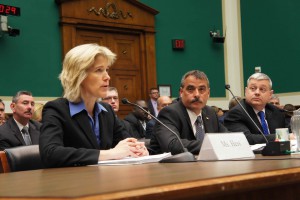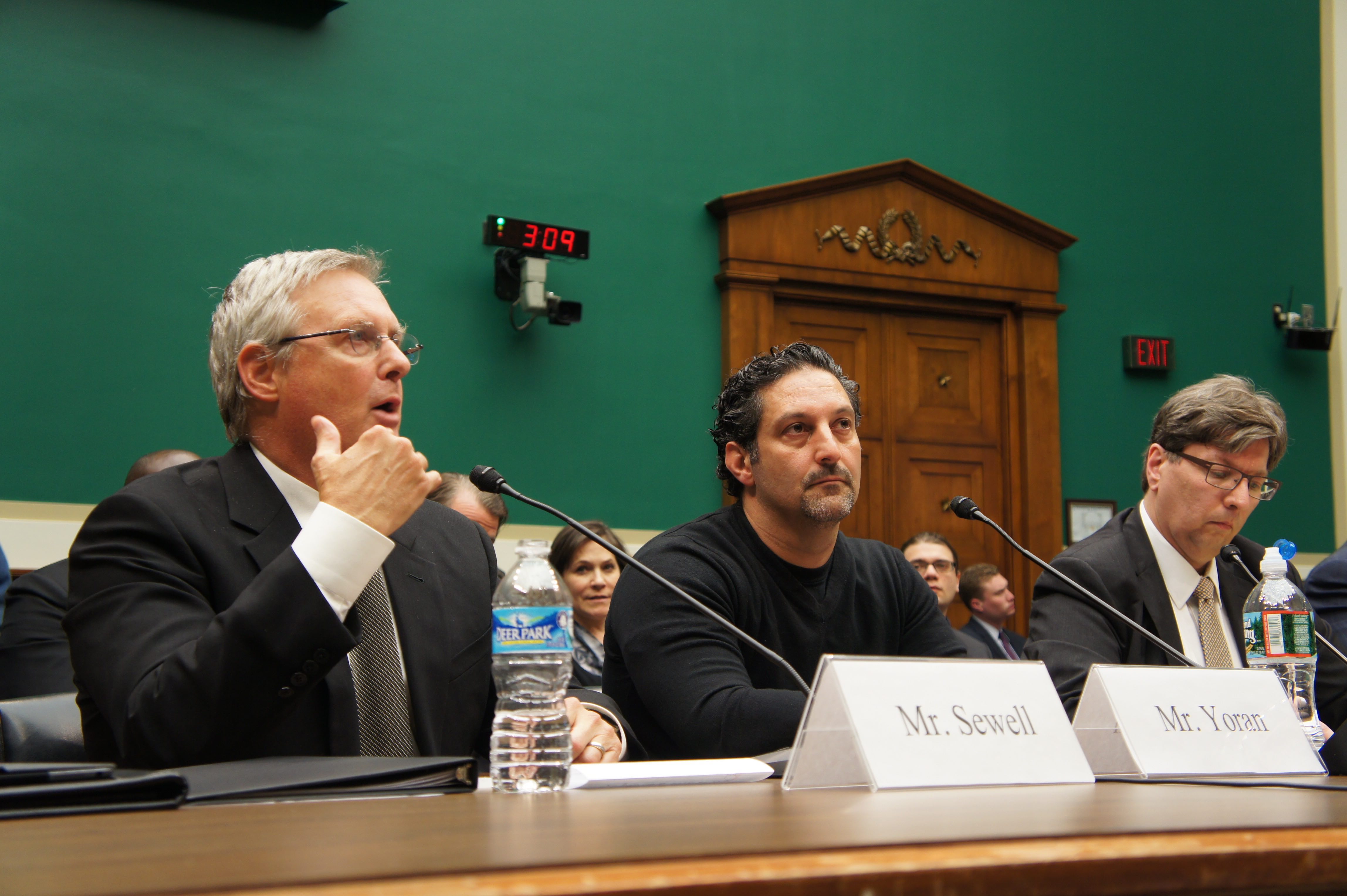Apple and the FBI brought their privacy versus national security battle to Capitol Hill Tuesday with law enforcement officials insisting on “backdoor” access to the encrypted technology. Apple argued anew that encryption protects people from cybercrime.
“The best way we – and the technology industry – know how to protect your information is through the use of strong encryption,” Apple’s top lawyer and general counsel, Bruce Sewell, told a House Energy and Commerce subcommittee.
Federal officials were able to successfully crack into the iPhone used by one of the gunmen during the December terror attack in San Bernardino, California, without help from Apple technicians. But lawmakers said the debate is just beginning over balancing the needs of national security and criminal investigations against protection of privacy rights.
“We are meeting today to consider the deceptively complex question: Should the government have the ability to lawfully access the encrypted technology and communications?” said Rep. Tim Murphy, R-Penn., the chairman of the oversight and investigations subcommittee.

Federal Bureau of Investigation Executive Assistant Director for Science and Technology Amy Hess, testifies to the House Energy and Commerce subcommittee on Capitol Hill in Washington, April 19, 2016. (Xiumei Dong/MNS)
Law enforcement argued the growing use of default encryption on mobile devices has put up strong barriers to effective investigations.
“Apple solved a problem that does not exist,” said Capt. Charles Cohen, commander of the office of intelligence and investigative technologies for the Indiana State Police. He said law enforcement agencies used to have the “back door” keys to break the encryption as long as they presented a warrant. But because of the rapid change in technology, the default encryption has stymied them.
Although granting FBI access to encrypted smartphones and other devices could help fight crime, Apple argued that all users would be vulnerable to cyber snooping – not just the relative few accused of crimes or security breaches.
“Encryption today is the backbone of our cyber security infrastructure and provides the very best defense we have against increasingly hostile attacks,” said Apple’s Sewell.
Amit Yoran, president of the Massachusetts-based security firm RSA, told the panel that “creating a ‘backdoor’ into all encryption for law enforcement means creating opportunity for a much broader set of people with nefarious intentions to harm us.” Yoran, however, agreed that technology teams should provide support for law enforcement.
No concrete solution to the security versus privacy question was offered at the hearing. However, both sides agreed to keep working on it.
“We support strong encryption,” said Amy Hess, executive assistant director for science and technology at the FBI. The FBI understands the usefulness of encryption, Hess said, but companies need to find ways to give investigators user data when a warrant is presented.


